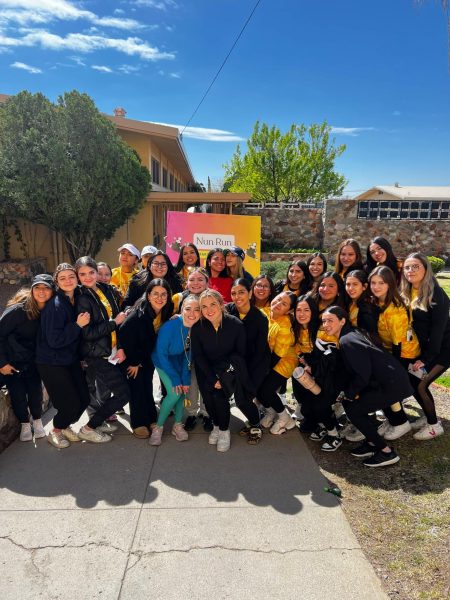Women’s History Month: why we celebrate it

Photo courtesy of Shutterstock
April 9, 2019
As recently as the 1970’s, women’s history was a topic not celebrated or recognized, however that all changed when a group of women lobbied Congress and challenged politicians in order to gain recognition for women in history.
According to the National Women’s History Museum, it wasn’t until 1980 when a consortium of women’s groups and historians—led by the National Women’s History Project—successfully lobbied for national recognition.
Even this past election there is now a record number of women serving in Congress and positions of power.
In February 1980, President Jimmy Carter issued the first Presidential Proclamation declaring the Week of March 8, 1980 as National Women’s History Week.
Following presidents continued to recognize Women’s History Week, however it wasn’t until 1987 when Congress finally passed a law that declared March “Women’s History Month”.
Since then, the month of March has been dedicated to celebrating the life of females, including celebrating those women that have made contributions in their professions or made a difference in social justice.
The National Women’s History Alliance selects and publishes the yearly theme. The 2019 Women’s History Month theme is “Visionary Women: Champions of Peace & Nonviolence.”
The theme honors “women who have led efforts to end war, violence, and injustice and pioneered the use of nonviolence to change society” according to their website.
In every profession, notable women are recognized throughout the month of March from sports, science, and politics.
In the beginning of the month, the US Women’s Soccer Team sued the U.S. Soccer for gender discrimination and equal pay.
According to the New York Times, in their filing and a statement released by the team, the 28 players described “institutionalized gender discrimination” that they say has existed for years.
The discrimination, the athletes said, affects not only their paychecks but also where they play and how often, how they train, the medical treatment and coaching they receive, and even how they travel to matches.
To prove that age is only a number, on March 14, 16 year old Greta Thunberg from Sweden was nominated for a Nobel Peace Prize for her for her efforts in climate activism and fighting global warming.
Thunberg is best known for sitting in front of Swedish parliament every day for three consecutive weeks in August 2018, when she was 15, to protest the lack of action on the climate crisis.
She posted her actions on Instagram and Twitter and soon went viral.
Many of the record breaking number of women serving in Congress this year have also shared their remarks on Women’s History Month.
One way to also celebrate Women’s History Month close to home is to recognize and honor great women found even in one’s own family, many social media platforms have been flooded with pictures of moms, aunts, and grandmothers all throughout the month of March to celebrate the women in one’s own life as well.
Whether it is for the fight for equal pay, gender discrimination in the workplace, or limited opportunities, many trailblazing women have always found a way to make that glass ceiling shatter a bit more every day.













